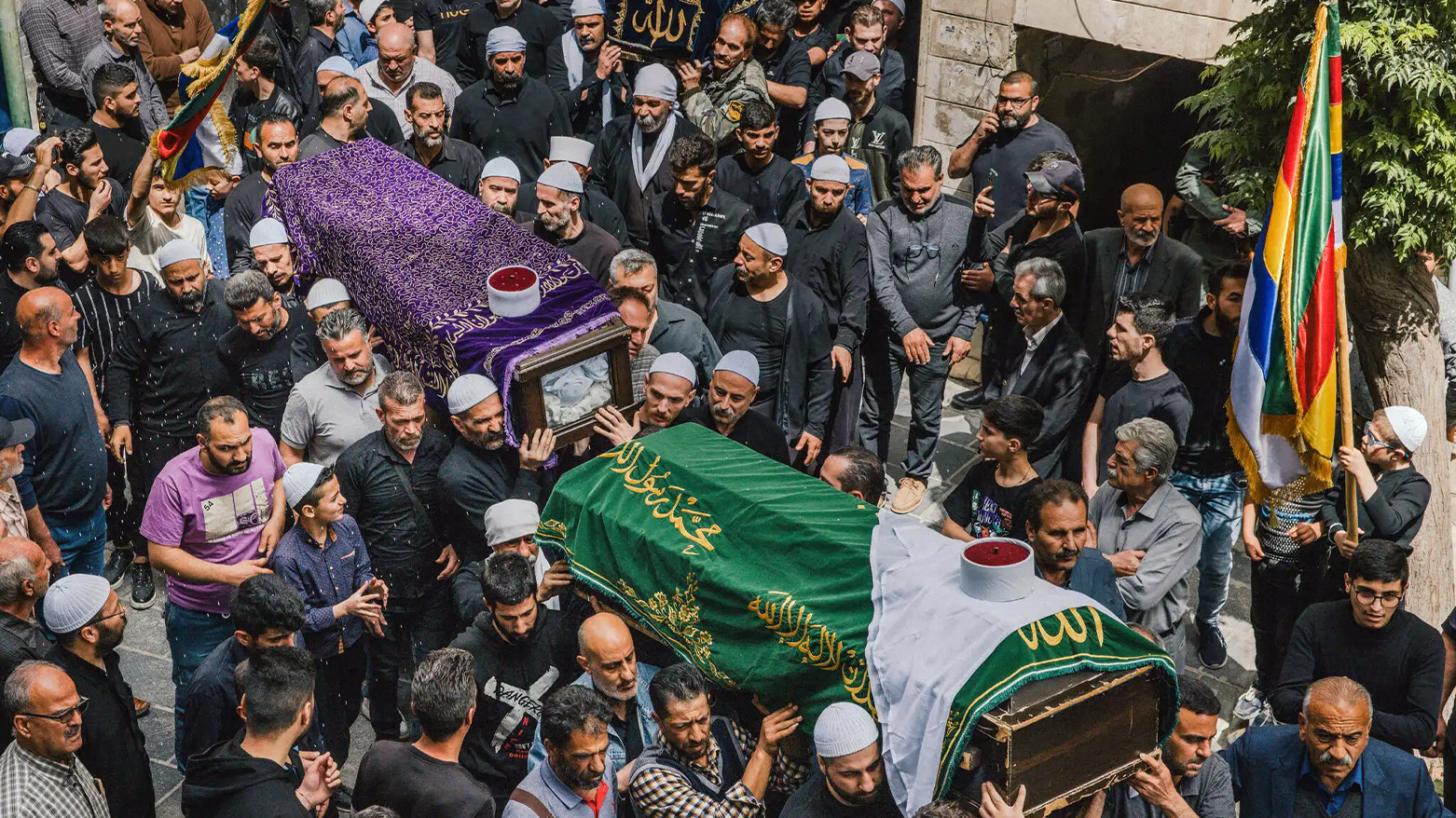'Warning to Syrian Regime,' Says Katz After Airstrike
Israel’s Defense Minister, Israel Katz, confirmed the strike on Friday, calling it a "clear warning message to the Syrian regime" over its failure to shield the Druze population from attacks by jihadist groups.

By Kamaran Aziz
ERBIL (Kurdistan24) - In an unprecedented escalation of military and political messaging, Israel launched an airstrike on a target near the Syrian presidential palace in Damascus late Thursday night, with top Israeli officials stating that the operation was a direct warning to Syria’s interim president, Ahmed al-Sharaa and a bold declaration of intent to protect the Druze minority in Syria.
Israel’s Defense Minister, Israel Katz, confirmed the strike on Friday, calling it a "clear warning message to the Syrian regime" over its failure to shield the Druze population from attacks by jihadist groups.
According to a New York Times report, this was the second Israeli intervention in Syria within days, signaling a shift toward more assertive military involvement in response to spiraling sectarian violence.
“When Joulani [Syria’s Interim President Ahmed al-Sharaa] wakes up in the morning and sees the results of the Israeli Air Force jet attack, he understands very well that Israel is determined to prevent harm to the Druze in Syria,” Katz declared.
The raid, reportedly targeting a site near the presidential palace, was personally authorized by Katz and Prime Minister Benjamin Netanyahu.
The strike follows a week of intense clashes in and around Damascus between Druze militias and Sunni armed groups, which erupted after a controversial audio recording circulated online purporting to feature a Druze cleric insulting the Prophet Muhammad. The cleric denied the allegation and Syria’s Interior Ministry confirmed he was not involved, but the damage had already been done.
Sectarian fighting soon engulfed Druze-populated areas such as Jaramana and Ashrafieh Sahnaya, with the death toll surpassing 100, according to the Syrian Observatory for Human Rights and corroborated by Al-Monitor.
According to The Washington Post, the Israeli military claimed it had targeted “operatives” who attacked Druze civilians in these districts. The IDF also evacuated wounded Syrian Druze for medical treatment in Israel and said it deployed forces near southern Syria to prevent further hostile incursions into Druze villages.
Prime Minister Netanyahu stated that Israel’s airstrike was aimed at deterring Syria’s interim government from moving troops southward or endangering the Druze community. The New York Times highlighted that the action marks a significant deepening of Israeli engagement in Syria, particularly with its direct targeting of areas adjacent to the Syrian leadership’s seat of power.
The broader context, however, paints a far more complex picture. Syria’s interim president Ahmed al-Sharaa, a former commander of Hayat Tahrir al-Sham (HTS)—once affiliated with al-Qaeda—has struggled to consolidate power since the ousting of Bashar al-Assad in December. Many of the factions that brought him to power, including foreign jihadist elements, remain outside the formal chain of command, complicating efforts to secure the state and protect minorities, as detailed in recent reports by the Wall Street Journal and The New York Times.
The Wall Street Journal noted that foreign fighters who fought alongside the rebel coalition have been appointed to senior positions in Syria’s security forces. This has stoked fears among the country’s minorities, especially the Druze and Alawites, who remember past atrocities committed by extremist factions. In March, over 1,600 Alawites were massacred in Syria’s coastal regions, further deepening mistrust.
Al-Monitor reported that Sheikh Hikmat al-Hijri, the spiritual leader of Syria’s Druze, accused the Syrian government of a “genocidal attack” on his community and called for immediate international intervention. He accused Damascus of collaborating with Takfiri factions, a term typically reserved for radical jihadists. Syria’s foreign minister responded by warning against foreign interference, asserting it would only worsen the situation.
Within Syria, minority groups like the Druze have taken up arms to protect their territories amid what many describe as a breakdown of state authority. Armed civilians and militias in Jaramana and Sweida have increasingly filled the security vacuum, often acting independently from state forces. According to The New York Times, even during Syria’s 14-year civil war, these areas had rarely witnessed such open sectarian conflict.
The violence has also placed pressure on Syria’s new rulers to integrate militias into a unified national army. Yet talks with powerful Druze factions like Rijal Al-Karama have failed to yield results. As The Wall Street Journal reported, some Druze militias have seized government offices and demanded full autonomy, while resisting both Damascus’s control and Israeli involvement.
Meanwhile, Israeli Druze communities, alarmed by the violence, have taken to the streets in protest, demanding robust Israeli intervention. Israeli leaders, aware of the deep bonds between the Druze communities on both sides of the border, have increasingly framed their military actions as moral obligations.
Nonetheless, local Druze in Syria remain deeply skeptical of Israel’s motivations. “Israel does not protect us,” said one Druze cleric to The Washington Post. “They didn’t protect us before; why would we think they would protect us now? They’re doing this for their political benefit, not ours.”
As tensions mount and regional players maneuver for influence, the fate of Syria’s Druze appears precariously caught between a fragmented Syrian state, emboldened jihadist elements, and a resurgent Israel projecting power beyond its borders. With sectarian lines hardening and international actors stepping in, the specter of prolonged instability looms ever larger over southern Syria.